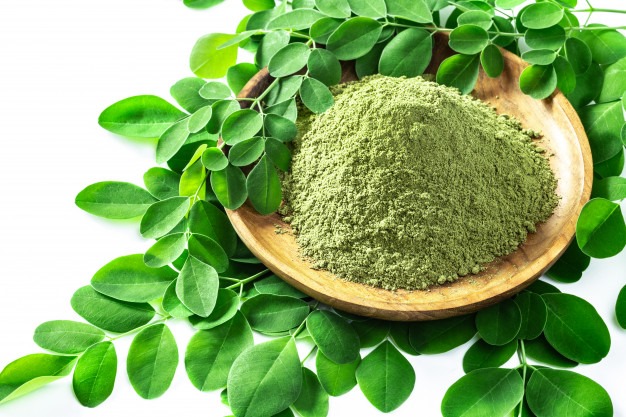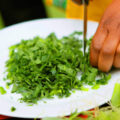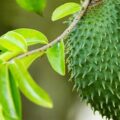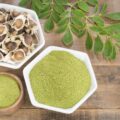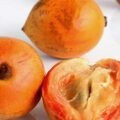Moringa, scientifically known as Moringa oleifera is also called the “Miracle Tree”, because of its many medicinal properties. This plant is one of the most widely cultivated plants in the world. With its high nutritive values, every part of the tree is suitable for either nutritional or commercial purposes. The leaves are rich in minerals, vitamins and other essential phytochemicals. Extracts from the leaves are used to treat malnutrition, augment breast milk in lactating mothers.
Moringa leaves are also used as potential antioxidant, anticancer, anti-inflammatory, antidiabetic and antimicrobial agent. In this article, we shall be focusing on the many benefits of this plant as well as its side effects.
What are the benefits of moringa leaves?
The health benefits of moringa leaves include:
Antidiabetic: Moringa leaves can help fight diabetes, because it contains compounds such as isothiocyanates. High blood sugar can be a serious health problem. In fact, it’s the main characteristic of diabetes. Over time, high blood sugar levels raise the risk of many serious health problems, including heart disease. For this reason, it’s important to keep your blood sugar within healthy limits.
Interestingly, several studies have shown that Moringa oleifera may help lower blood sugar levels. One study in 30 women showed that taking 1.5 teaspoons (7 grams) of moringa leaf powder every day for three months reduced fasting blood sugar levels by 13.5%, on average. Another small study found that adding 50 grams of moringa leaves to a meal reduced the rise in blood sugar by 21%.
Help with high blood pressure: High cholesterol is when you have too much of a fatty substance called cholesterol in your blood. High blood pressure (hypertension) and high cholesterol also are linked. When the arteries become hardened and narrowed with cholesterol plaque and calcium (atherosclerosis), the heart has to strain much harder to pump blood through them. As a result, blood pressure becomes abnormally high. The good news here is that studies have shown that Moringa has cholesterol-lowering effects.
Reduce Inflammation: Research has shown that chronic inflammation is associated with heart disease, diabetes, cancer, arthritis, and bowel diseases like Crohn’s disease and ulcerative colitis. Yet, because chronic inflammation can continue for a long time, it’s not easy to know its exact impact. Adding moringa leaves to your food is a good way to fight inflammation and its attendant negative effects on your health. Scientists believe that isothiocyanates the main anti-inflammatory compounds in moringa leaves is responsible for this effect.
Anticancer agent: Antioxidants are compounds that act against free radicals in your body. High levels of free radicals may cause oxidative stress, which is associated with chronic diseases like heart disease and type 2 diabetes. The presence of increased levels of exogenous antioxidants has been shown to prevent the types of free radical damage that have been associated with cancer development.
Several antioxidant plant compounds have been found in the leaves of Moringa oleifera.
In addition to vitamin C and beta-carotene, these include:
- Quercetin: This powerful antioxidant may help lower blood pressure
- Chlorogenic acid: Also found in high amounts in coffee, chlorogenic acid may help moderate blood sugar levels after meals. One study in women found that taking 1.5 teaspoons (7 grams) of moringa leaf powder every day for three months significantly increased blood antioxidant levels.
Moringa leaf extract may also be used as a food preservative. It increases the shelf life of meat by reducing oxidation.
Boost breast milk production: Research regarding the effects of moringa for increasing breast milk production is mixed. Some early research shows that moringa increases milk production after one week of use, while other early research shows no benefit. It’s also not clear if moringa is beneficial when used for longer periods of time.
Help with Asthma: Asthma is a condition in which your airways narrow and swell and may produce extra mucus. This can make breathing difficult and trigger coughing, a whistling sound (wheezing) when you breathe out and shortness of breath. For some people, asthma is a minor nuisance. Early research shows that taking 3 grams of moringa leaves twice daily for 3 weeks reduces the severity of asthma symptoms and improves lung function in adults with mild to moderate asthma.
Other uses: The leaves of moringa is taken by mouth for “tired blood” (anemia), arthritis and other joint pain (rheumatism), diarrhea, seizures, stomach pain, stomach and intestinal ulcers, intestinal spasms, headache, heart problems, kidney stones, symptoms of menopause, thyroid disorders, and infections.
Moringa leaves is also taken by mouth to reduce swelling, as an antioxidant to prevent spasms, increase sex drive (as an aphrodisiac), prevent pregnancy, boost the immune system, and increase breast milk production. Some people use it as a nutritional supplement or tonic. It is also used as a “water pill” (diuretic).
Powdered moringa leaves is sometimes applied directly to the skin as a germ-killer or drying agent (astringent). It is also applied to the skin for treating pockets of infection (abscesses), athlete’s foot, dandruff, gum disease (gingivitis), snakebites, warts, and wounds. Read: Does Moringa Detoxify the Body
What Are the Side Effects of Moringa Leaves?
While the leaves are perfectly safe, consuming large quantities of the bark or pulp may be harmful.
Moringa side effects may include:
- Lower blood pressure and slow heart rate because of the alkaloids in the plant
- Uterine contractions from moringa bark
- Cell mutations caused by a chemical isolated from roasted moringa seeds
- Interference with fertility
- Upset stomach, gas or diarrhea due to laxative properties
Moringa leaves also increased the risk of liver and kidney damage. Do not consume moringa if you are pregnant, taking the diabetes drug Januvia (sitagliptin) or taking drugs that are substrates of the cytochrome P450 family of enzymes.


